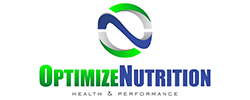Unveiling the Health Benefits of Ginkgo Biloba: An Ancient Remedy Backed by Modern Science
Introduction
Ginkgo biloba, often referred to as a "living fossil," has been used in traditional medicine for thousands of years. Known for its fan-shaped leaves, Ginkgo biloba is particularly celebrated for its potential benefits on cognitive function, circulation, and overall brain health. In recent decades, scientific studies have provided solid evidence supporting its therapeutic claims. This blog delves into the health benefits, scientific findings, recommended dosages, and safety considerations for Ginkgo biloba.
The Health Benefits of Ginkgo Biloba
- Cognitive Function and Memory Enhancement Ginkgo biloba is perhaps best known for its potential to enhance memory and cognitive function. A 2009 study published in JAMA examined the effects of Ginkgo biloba on cognitive decline in older adults. Despite some mixed results in smaller studies, this large-scale study found that Ginkgo biloba extract (EGb 761) may help maintain cognitive function, especially in aging populations Source.
- Treatment of Dementia and Alzheimer's Disease
Several studies suggest that Ginkgo biloba may play a role in improving symptoms of dementia and Alzheimer's. A Cochrane Review Source indicated that the standardized extract EGb 761 could provide mild cognitive improvements, particularly in patients with Alzheimer’s disease. Ginkgo's antioxidant properties, combined with its ability to improve blood flow to the brain, may contribute to these positive effects. - Improved Circulation
Ginkgo biloba is widely used to improve blood circulation, which may benefit individuals with peripheral artery disease and other vascular issues. Studies suggest that Ginkgo helps dilate blood vessels and improve overall blood flow, which can enhance cardiovascular health. Research published in Fitoterapia Source supports this by showing how it reduces inflammation and increases oxygen utilization in tissues. - Neuroprotection and Antioxidant Properties
Ginkgo biloba's neuroprotective effects are largely attributed to its antioxidant properties. According to a study in Cellular and Molecular Life Sciences Source, Ginkgo extract scavenges harmful free radicals and reduces oxidative stress, which may prevent neurodegenerative diseases like Parkinson’s and Alzheimer’s. These protective effects are due to compounds like flavonoids and terpenoids found in Ginkgo biloba. - Potential Benefits for Anxiety and Depression
Although less researched than its cognitive benefits, Ginkgo biloba has been explored as a natural remedy for anxiety and depression. Its ability to improve blood flow and regulate neurotransmitters may help alleviate some symptoms of anxiety. However, further research is needed to establish the effectiveness of Ginkgo in treating mood disorders.
Dosages and Recommendations
Standardized Ginkgo Biloba Extract (EGb 761) is the form most commonly studied in clinical trials. It contains 24% flavone glycosides and 6% terpene lactones, the key active ingredients. Here are some common dosage guidelines:
- Cognitive Function and Dementia:
The typical dosage for cognitive improvement or dementia-related symptoms ranges from 120 mg to 240 mg per day. This dosage is often split into two or three doses throughout the day. Studies like the Ginkgo Evaluation of Memory (GEM) Study recommend 240 mg/day for optimal results Source. - Improving Circulation:
For those taking Ginkgo biloba to improve circulation, especially in the legs (due to conditions like intermittent claudication), 120 mg to 240 mg per day is often recommended. According to a review published in Natural Product Research Source, consistent use over several weeks is necessary to see results. - Mood and Anxiety:
Smaller doses of around 80 mg to 120 mg per day may help alleviate anxiety symptoms, though more research is needed in this area. Psychiatric Clinics suggests that Ginkgo may enhance mood through increased blood flow to the brain Source.
Safety and Potential Side Effects
While Ginkgo biloba is generally considered safe for most people, there are some important safety considerations to keep in mind:
- Bleeding Risk:
Ginkgo biloba can increase the risk of bleeding, especially in individuals taking blood thinners like aspirin or warfarin. This is due to its blood-thinning properties, so it is crucial to consult a healthcare provider before combining it with other medications. - Allergic Reactions:
Some individuals may experience allergic reactions, particularly if they are sensitive to plants like poison ivy, sumac, or mango rind. - Ginkgotoxin:
Ginkgo seeds contain ginkgotoxin, which is neurotoxic. While the leaves used in supplements contain far lower amounts of this compound, caution should still be exercised. A 2010 study in the Journal of Natural Products discusses potential concerns regarding ginkgotoxin in Ginkgo-based supplements Source.
Conclusion
Ginkgo biloba stands out as a natural supplement with a range of potential benefits, particularly for cognitive health, memory, circulation, and overall brain function. While its effectiveness can vary from person to person, and more research is needed in some areas, the current body of evidence supports its role in preventing cognitive decline and improving overall well-being.
For those considering adding Ginkgo biloba to their health regimen, it's essential to follow proper dosage guidelines and consult with a healthcare provider, particularly if you are on other medications or have underlying health conditions.
Check out some of our Ginkgo Biloba Supplements using this link.
If you would like pure Ginkgo Biloba check out
Prairie Naturals Ginkgo Biloba Extract 60mg 120Cap
By drawing from both historical use and modern science, Ginkgo biloba remains a popular natural remedy for maintaining brain health and enhancing cognitive function.
Recent Posts
-
Beat the Winter Blues: A Nutritionist’s Guide to Managing Seasonal Affective Disorder Naturally
As the days get shorter and temperatures drop, many people notice changes in mood, energy, sleep, an …Dec 12, 2025 -
Back to School: Sharpen Focus, Energize Learning
As the school season kicks off, it’s the perfect time to set students up for success—not just with s …Sep 02, 2025 -
Is Apple Cider Vinegar Really Good for You?
Exploring the Benefits of ACV (Featuring Filsingers Organic Apple Cider Vinegar & Suku Vitamins Appl …Jul 18, 2025




